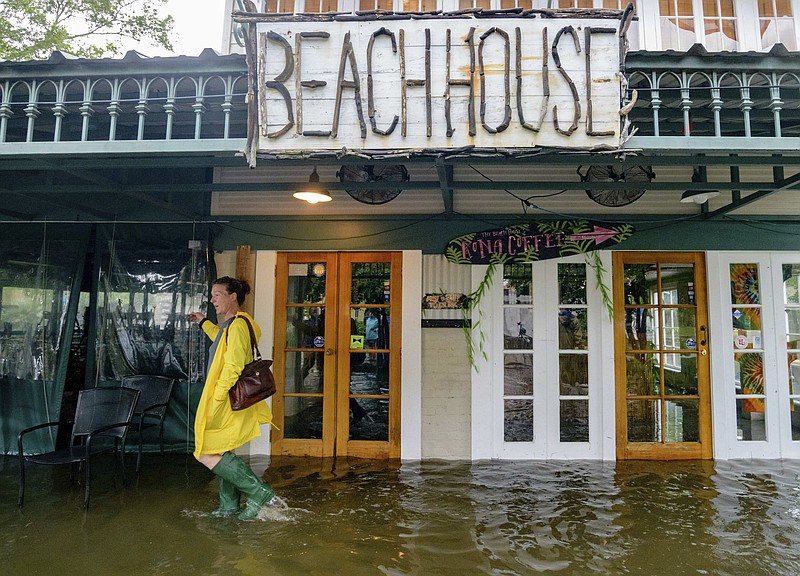NEW ORLEANS (AP)-- Authorities say rains from Barry overwhelmed sewer systems on Alabama's coasts, causing more than 250,000 gallons (946,000 liters) in spills.
The Alabama Department of Public Health says more than 180,000 gallons (680,000 liters) of sewage spilled in Baldwin County, located across Mobile Bay from the city of Mobile.
An estimated 125,000 gallons (470,000 liters) went into D'Olive Creek in Daphne. The state says spills also are being reported in Fairhope and Bay Minette.
The Mobile Area Water and Sewer System says about 80,680 gallons (305,000 liters) of sewage went into three creeks in the city.
The state is telling coastal residents to stay out of the waterways. It also says that any seafood caught in the area should be cooked thoroughly before consumption.
Forecasters say more than a foot (30 centimeters) of rain has fallen in parts of Louisiana, prompting new flash flood warnings in that state and in Mississippi as the remnants of Barry inch north through the nation's midsection.
The National Weather Service issued multiple flash flood warnings Monday morning in Louisiana and Mississippi.
Forecasters said up to 14 inches (36 centimeters) of rain had already fallen some spots in southwest Louisiana.
Monday's rainfall was among the heaviest seen so far after Barry struck Louisiana over the weekend as a weak hurricane.
Even though Tropical Depression Barry did not unleash catastrophic flooding in Louisiana, many across the Gulf Coast were urged to take heed of tornado and flash-flood warnings Monday as the storm moved north.
Barry was downgraded from a tropical storm on Sunday afternoon but continued to pose a threat. Much of Louisiana and Mississippi were under flash-flood watches, as were parts of Arkansas, eastern Texas, western Tennessee and southeastern Missouri.
Louisiana Gov. John Bel Edwards urged residents to be cautious as they ventured outside after a weekend in which many had sheltered indoors.
He says he was "extremely grateful" that the storm had not caused the disastrous floods that had earlier been forecast.
According to poweroutage.us, about 60,000 customers in Louisiana and 3,300 customers in Mississippi were without power Sunday night.
For the latest on Tropical Storm Barry, visit https://apnews.com/Hurricanes .
